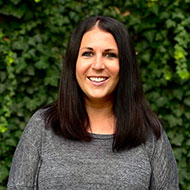Kayla Freemon
Understanding the Relative Impact of Police-led Programs as Mechanisms of Accountability on Patrol Officer Misconduct

Kayla Freemon is a fourth year Criminology and Criminal Justice doctoral student at Arizona State University and a Research Assistant in the Center for Violence Prevention and Community Safety. She holds a M.S. in Justice, Law, and Criminology from American University, a B.S. in Criminal Justice from Loyola University Chicago, and received a certificate in Social Science Research Methods from Arizona State University and Analytics and Management from American University. Kayla previously worked as an International Affairs Specialist at the U.S. Department of Justice and served as a Peace Corps volunteer in Guyana.
Kayla’s research interests lie broadly at the intersection between policy, practice, and research, focused on program and policy evaluation, violence prevention, jail experiences, and crime and justice in the Caribbean. Some of her current projects include evaluations of a police gun crime reduction program and early intervention system, an Inter-American Development Bank (IADB)-funded technical assistance project to provide recommendations on sexual and domestic violence in Suriname, a Bureau of Justice Assistance (BJA)-funded examination of body-worn camera impacts in small, rural, and tribal areas, and dissemination of results on delinquency across nine Caribbean nations. Kayla’s dissertation expands on this focus and examines internal and external accountability at a large police department. Her work has appeared in Preventative Medicine Reports, International Criminal Justice Review, and the Caribbean Journal of Criminology.
Beyond research, Kayla has served as an undergraduate instructor at Millikin University and Arizona State University and as a teaching assistant at American University for in-person, online, and hybrid courses on policing, corrections, and research methods. She is committed to teaching that centers students’ needs and prepares the next generation of criminal justice professionals and learners.
Kayla is interested in academic or non-academic opportunities that allow her to continue to work and collaborate on projects with practitioners, policymakers, and communities to improve outcomes, identify and advance evidence-based practices, and address challenges to program implementation.